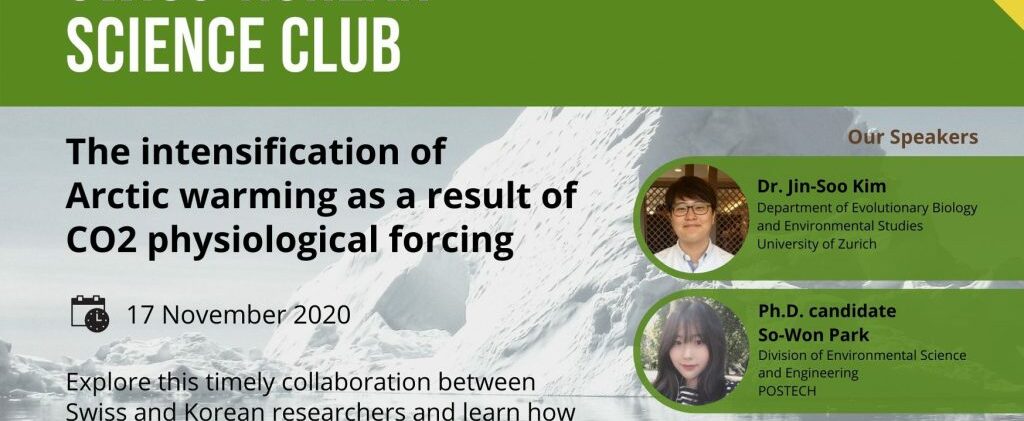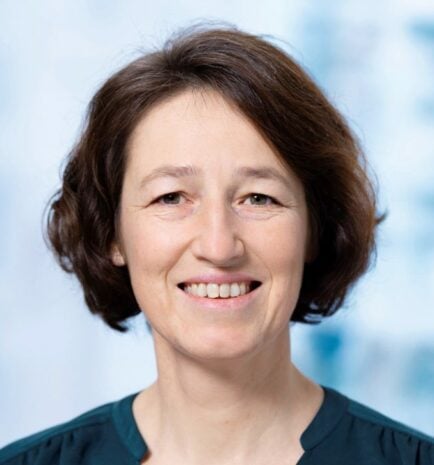
This month's speakers
-
![]()
Bio
Dr. Jin-Soo Kim
Senior Researcher, Department of Evolutionary Biology and Environmental Studies, University of ZurichJin-Soo Kim is a senior researcher at the Department of Evolutionary Biology and Environmental Studies, University of Zurich. He graduated from the Seoul National University, with bachelors and master’s degrees in Atmospheric Science and Pohang University of Science and Technology (POSTECH) with Ph.D in 2019. During his Ph.D, his research proposal was selected for the Young Researchers Exchange Program between Korea and Switzerland and he visited the University of Zurich for 3 months and received the Best Thesis Award in the field of Natural Science at POSTECH and Minister’s award for excellence and outstanding performance under the Brain Korea 21+ project from Deputy Prime Minister for Society and Education. He published several Nature- and Science-branded papers as the first author about interactions between terrestrial ecosystem and climate variabilities such as atmospheric teleconnection impacts on the terrestrial carbon cycle and large-scale fire activity and he is interested in Earth System Modelling.
-
![]()
Bio
So-Won Park
PhD candidate, Division of Environmental Science and Engineering, POSTECHSo-won Park is a Ph. D student at the Division of Environmental Science and Engineering, Pohang University of Science and Technology (POSTECH).
She received her Bachelor’s Degrees from Pusan National University and Master’s Degrees in 2020 from POSTECH.Her research interests include terrestrial biogeochemical processes and its feedback, especially in pan-Arctic region. Also, she has been working on impacts of plant physiological response to increasing CO2 on climate system and on interaction between land carbon cycle and large-scale atmospheric variability.
-
![]()
Bio
Prof. Gabriela Schaepman-Strub
Associate Professor of Earth System Sciences, University of ZurichGabriela Schaepman-Strub is interested in the role of the changing biosphere in the Arctic system. With her team she investigates plant strategies and diversity in Arctic ecosystems, their changes and feedbacks with the permafrost and atmosphere through energy fluxes. Methods range from in situ observational and experimental studies to drone and satellite-based remote sensing and process-based modelling. Her interests further extend to co-production of knowledge with indigenous and local communities and artists. She is a co-director of the Zurich University Research Priority Program on Global Change and Biodiversity, current chair of the Science and Technology Advisory Board of the Swiss Polar Institute, and is representing Swiss polar research in several international science-policy frameworks. After research stays at Boston University, Wageningen University, and NASA JPL, she returned to the University of Zurich where she now is a professor in Earth System Science.
“The intensification of Arctic warming as a result of CO2 physiological forcing”
Abstract: Stomatal closure is one of the main physiological responses to increasing CO2 concentration, which leads to a reduction in plant water loss. This response has the potential to trigger changes in the climate system by regulating surface energy budgets—a phenomenon known as CO2 physiological forcing. However, its remote impacts on the Arctic climate system are unclear. Here we show that vegetation at high latitudes enhances the Arctic amplification via remote and time-delayed physiological forcing processes. Surface warming occurs at mid-to high latitudes due to the physiological acclimation-induced reduction in evaporative cooling and resultant increase in sensible heat flux. This excessive surface heat energy is transported to the Arctic ocean and contributes to the sea ice loss, thereby enhancing Arctic warming. The surface warming in the Arctic is further amplified by local feedbacks, and consequently the contribution of physiological effects to Arctic warming represents about 10% of radiative forcing effects.


